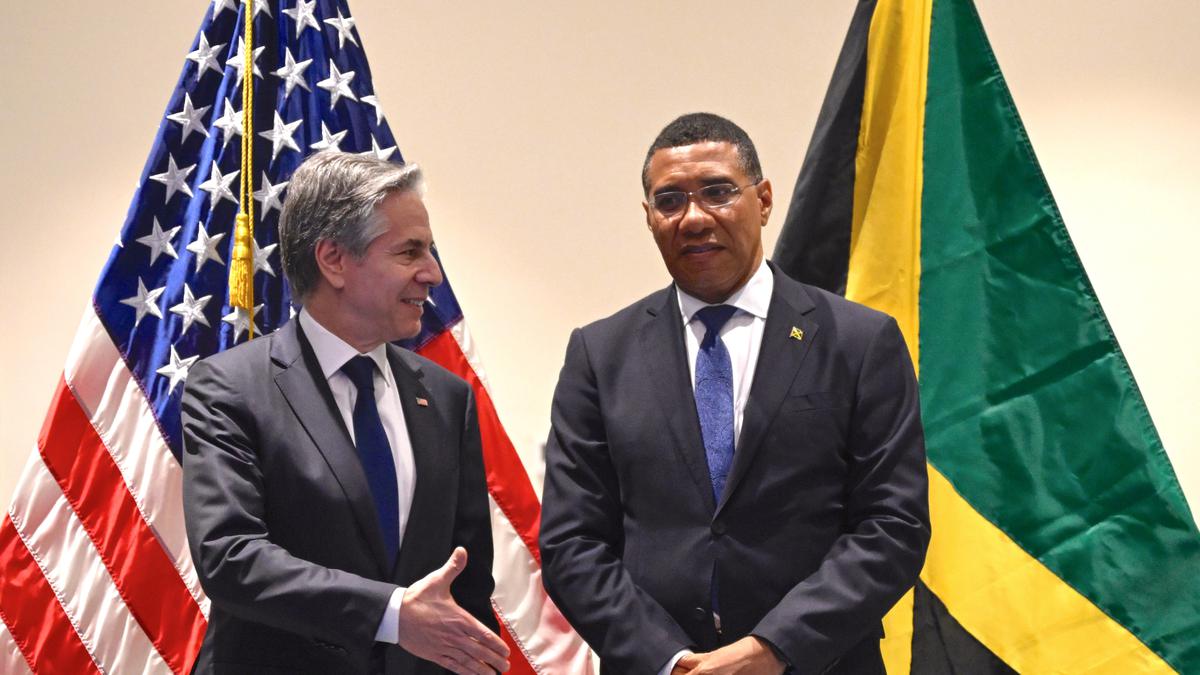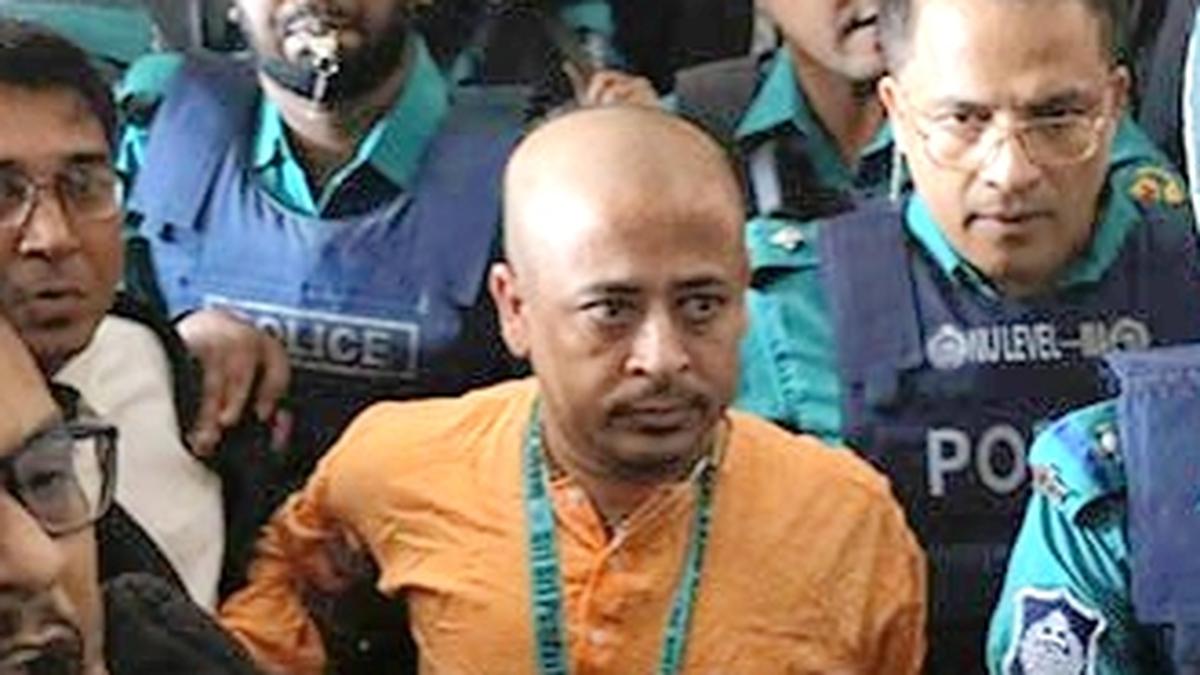Secretary of State Antony Blinken talks with Jamaica’s Prime Minister Andrew Holness at the Pegasus Hotel during a meeting on Haiti at the Conference of Heads of Government of the Caribbean Community (CARICOM) in Kingston, Jamaica, on March 11, 2024.
| Photo Credit: AP
U.S. Secretary of State Antony Blinken huddled with Caribbean leaders in Jamaica behind closed doors on March 11 to urgently help find a way to ease Haiti’s growing violent crisis as embattled Prime Minister Ariel Henry faces calls to resign or agree to a transitional council.
The closed-door meeting did not include Mr. Henry, who has been locked out of his own country while traveling abroad, due to surging unrest and violence by criminal gangs who have overrun much of Haiti’s capital and closed down its main international airports.
Also read | US military airlifts embassy personnel from Haiti, bolsters security
Mr. Henry remained in Puerto Rico and was taking steps to return to Haiti once feasible, according to a brief statement from the U.S. territory’s Department of State.
While leaders met behind closed doors, Jimmy Chérizier, considered Haiti’s most powerful gang leader, told reporters that if the international community continues down the current road, “it will plunge Haiti into further chaos.”
“We Haitians have to decide who is going to be the head of the country and what model of government we want,” said Chérizier, a former elite police officer leader of a gang federation known as G9 Family and Allies. “We are also going to figure out how to get Haiti out of the misery it’s in now.”
The meeting in Jamaica was organized by members of a regional trade bloc known as Caricom, which for months has pressed for a transitional government in Haiti while protests in the country have demanded mr. Henry’s resignation.
“The international community must work together with Haitians towards a peaceful political transition,” U.S. Assistant Secretary for Western Hemisphere Affairs Brian Nichols wrote on X, formerly Twitter. Nichols will attend the meeting.
Concerns remain that a long-sought solution will remain elusive. Caricom said in a statement on Friday announcing the urgent meeting in Jamaica that while “we are making considerable progress, the stakeholders are not yet where they need to be.”
Mia Mottley, Barbados’ prime minister, said that up to 90% of proposals that Haitian stakeholders have “put on the table” are similar. These include an “urgent need” to create a presidential council to help identify a new prime minister to establish a government.
Her comments were briefly streamed by Caricom, in what appeared to have been a mistake, and then were abruptly cut off.
The meeting was held as powerful gangs continued to attack key government targets across Haiti’s capital of Port-au-Prince. Since Feb. 29, gunmen have burned police stations, closed the main international airports and raided the country’s two biggest prisons, releasing more than 4,000 inmates.
Scores of people have been killed, and more than 15,000 are homeless after fleeing neighborhoods raided by gangs. Food and water are dwindling as stands and stores selling to impoverished Haitians run out of goods. The main port in Port-au-Prince remains closed, stranding dozens of containers with critical supplies.
Mr. Henry landed in Puerto Rico last week after being denied entry into the Dominican Republic, which shares the island of Hispaniola with Haiti.
When the attacks began, Henry was in Kenya pushing for the U.N.-backed deployment of a police force from the East African country that has been delayed by a court ruling.
A growing number of people are demanding Henry’s resignation. He has not made any public comment since the attacks began.
The U.N. Security Council on Monday urged Haiti’s gangs “to immediately cease their destabilizing actions,” including sexual violence and the recruitment of children, and said it expects that a multinational force will deploy as soon as possible to help end the violence. It urged the international community to support the Haitian National Police by backing the force’s deployment.
Council members also expressed concern at the limited political progress and urged all political actors to allow free and fair legislative and presidential elections.
A U.N. delegation attending Monday’s meeting includes the secretary-general’s chief of staff Courtenay Rattray, Undersecretary-General Atul Khare, who is in charge of U.N. logistics, and Assistant Secretary-General Miroslav Jenča, who is in charge of the Americas in the U.N. political office.
U.N. Secretary-General António Guterres is calling for the urgent deployment of the multinational force and that the mission be adequately funded, said his spokesman Stephane Dujarric.
Currently, funding is at only $10.8 million, with officials in Kenya demanding more than $230 million.




